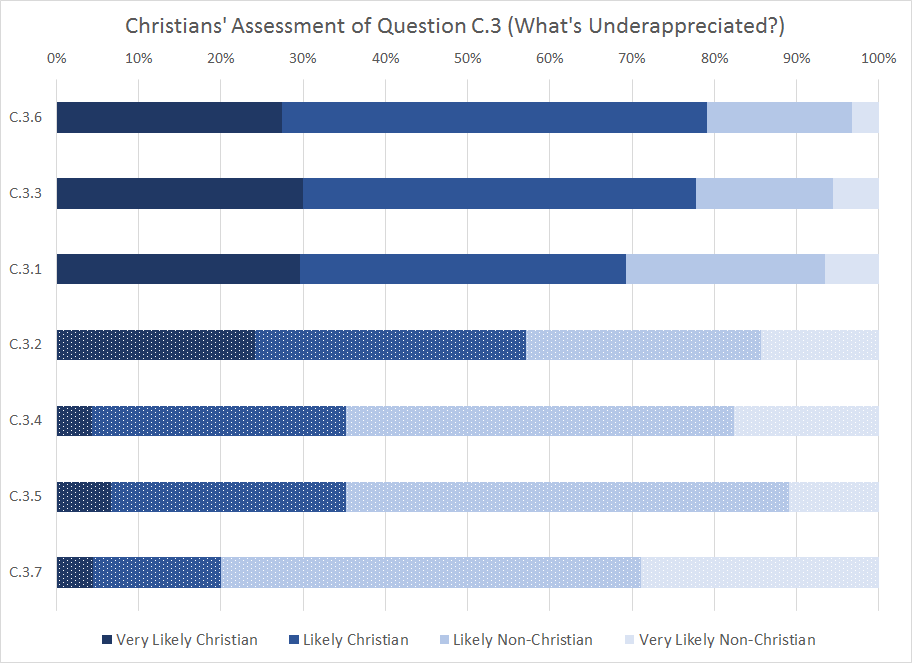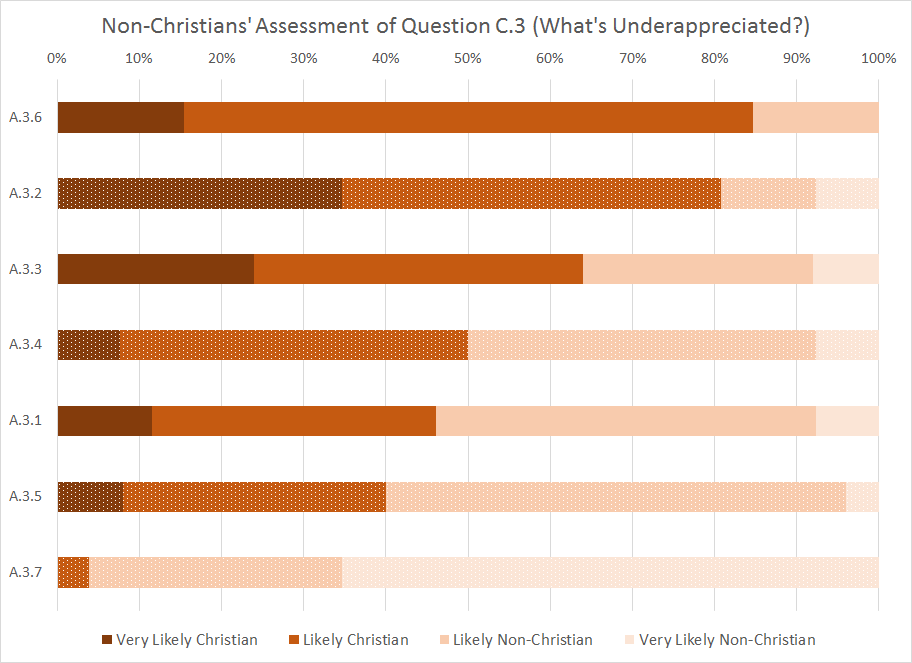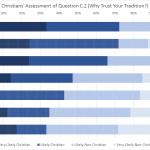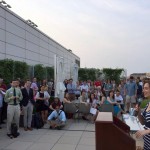The third prompt in the Christian round of the 2015 Ideological Turing Test is the first not to have a winner. Every non-Christian was ranked below the real Christians, when the Christian readers voted. But here’s the faux-Christian response to “What is an element of your tradition that is underappreciated by your fellow believers” that got closest to victory:
I like to tell people about “Creatureliness”. It’s the idea that we should be grateful we humans are not in the role of God, with all the burden that managing the physical and moral substance of the universe entails. We should recognize that we humans are closer to nature – subject to the universe – than we are to God – agent of the universe. It’s our imperfections that enable us to strive to be holy and our passivity that enables us to receive God.
But that answer ranked behind all the ringers, and only scraped a bare majority (57%) of Christians thinking that it was genuine. (Real Christians are solid shaded, non-Christians are faded)
Our non-Christian honorable mention describes himself this way:
I am an atheist. I was raised non-denomination Christian and lost my faith sometime in middle school. I was closeted for several years before coming out to my surprisingly supportive family. I am a white male in a PhD program for physics and I answer questions about atheism for a website called AllExperts.
He was accepted with less skepticism by the non-Christians (but take their results with a grain of salt — only 26 non-Christians voted on this question).
Both groups agreed on which was the least convincing fake-Christian entry (which happened to come from an ex-Christian):
Fellow believers do not keep the sabbath holy, they work when they should rest.
Here, I’d guess again that this answer failed by not sounding very much like the Christians who frequent my blog but also by not being very enthusiastic about the practice that they were ostensibly evangelizing.
This is part of the 2015 Ideological Turing Test series, where Christians and non-Christians test how well they understand one another. You can find all posts about the 2015 Ideological Turing Test here. And you can see all answers to this prompt (and who wrote them) here.













